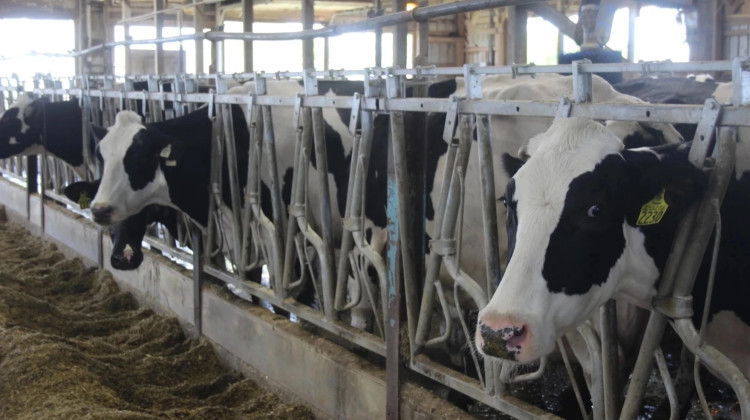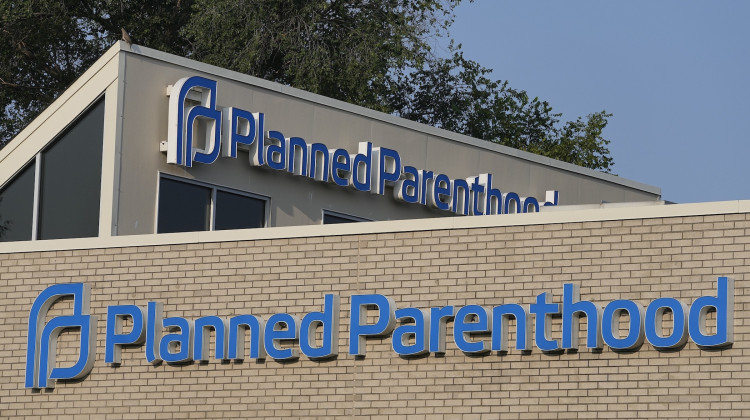
Indiana and Ohio join 11 other states as part of a federal milk testing program monitoring the spread of bird flu in cattle.
Benjamin Thorp / WFYIThe U.S. Department of Agriculture is requiring more states to test their unpasteurized milk for bird flu or H5N1.
Indiana and Ohio are both part of the second group of states added to the federal testing program.
Other states include: California, Colorado, Maryland, Michigan, Mississippi, Montana, New York, Oregon, Pennsylvania, Vermont and Washington.
According to the USDA, the first two groups of selected states include eight of the top 15 dairy-producing states in the country.
This comes as California has declared a state of emergency due to bird flu infections in its dairy cattle.
So far this year, 865 dairy herds in 16 states have tested positive for bird flu, including in Iowa, Ohio, Michigan, Minnesota, Oklahoma and Kansas.
Denise Derrer Spears, public information director with the Indiana State Board of Animal Health, said the state hopes to get some bulk testing in place by January 2025.
“All the states need to participate in some testing program to get that clarity as far as where [the virus] is and exactly what the extent of the spread of the disease has been,” she said.
The USDA has outlined a five-point plan for regular bulk milk testing, which ramps up or down depending on whether any infected milk is detected.
According to Spears, Indiana will provide milk samples from processing plants and silos that sometimes oversee milk from eighty different farms.
“USDA is advocating testing from those,” Spears said. “That way you get lots of farms tested at one time off of a single test.”
Any non-negative tests will then require the state to go back and figure out where the infection originated from.
In its release, the USDA said the program is aimed at containing and eliminating the virus from the national dairy herd.
The USDA maintains that the pasteurization process neutralizes the bird flu virus making it safe to consume, and the U.S. Centers for Disease Control and Prevention has warned against drinking raw milk.
Scientists have raised concerns that unchecked spread among cows could potentially make the virus spill over to humans, potentially making it contagious, and deadly in humans.
So far in 2024, there have been 37 reported cases of humans infected with H5N1 connected to dairy cattle. The vast majority of those cases come out of California.
But experts have raised concerns that not enough testing was being done to identify where bird flu had spread within herds and humans.
On Dec. 18, the CDC confirmed the first severe case of bird flu in a Louisiana man exposed to sick birds in his backyard. The case was unrelated to bird flu infections in cattle.
The risk to the public from the virus is still considered to be low, according to the CDC.
Benjamin Thorp is a health reporter at WFYI and Side Effects Public Media. Reach out to him at bthorp@wfyi.org.
Side Effects Public Media is a health reporting collaboration based at WFYI in Indianapolis. We partner with NPR stations across the Midwest and surrounding areas — including KBIA and KCUR in Missouri, Iowa Public Radio, Ideastream in Ohio and WFPL in Kentucky.
 DONATE
DONATE






 Support WFYI. We can't do it without you.
Support WFYI. We can't do it without you.